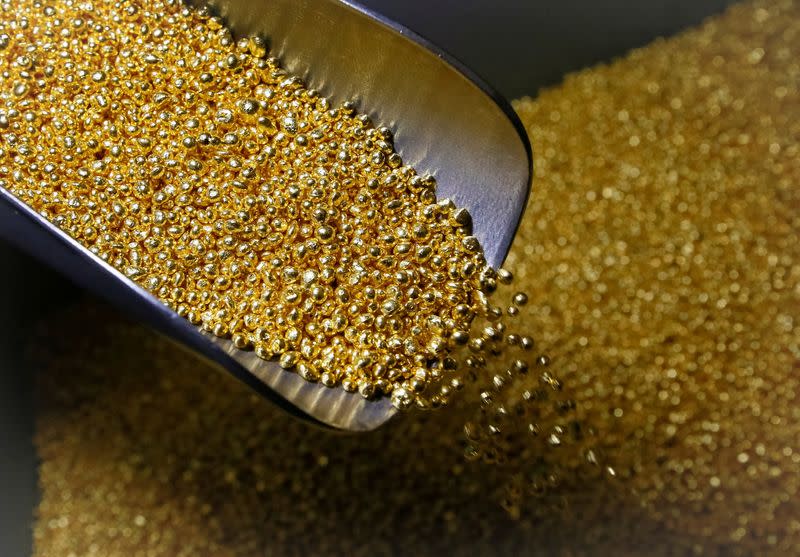Russia gives Credit Bank of Moscow licence to export gold

(Reuters) - Credit Bank of Moscow (MKB), one of Russia's largest private lenders, has obtained a gold export licence from the government, it said on Monday, becoming the latest Russian bank to turn to precious metals trade to offset the impact of sanctions.
The main operators of the gold market in Russia and its largest lenders - Sberbank and VTB - have been hit by harsh Western sanctions imposed on Moscow after it sent tens of thousands of troops into Ukraine on Feb. 24.
"MKB has a dedicated focus on developing operations with precious metals," MKB said in a statement. The bank has also been subject to sanctions in the United States but it said they were not "blocking" its activity.
"We are following major trends on the financial market and assessing prospects for the development of our business, including the precious metals business," it added.
Russia is one of the world's largest producers of gold along with Australia and China. Its 2021 gold production from mines rose by 1.7% to 314 tonnes, the finance ministry said.
After the sanctions, Russia's gold miners and banks - which can still trade precious metals abroad - are searching for buyers as demand at home is unstable.
The central bank, which used to be the main buyer of the Russian gold from commercial banks in previous years, has changed its rules for gold purchases several times since Feb. 24, including a short-lived decision to stop all buying.
Demand for gold bars from Russians spiked in March after Moscow scrapped a 20% value-added tax on gold purchases, but it has since weakened as the rouble pared initial losses and became the world's best-performing currency due to the central bank's control measures.
(Reporting by Reuters; editing by Barbara Lewis)

 Yahoo Finance
Yahoo Finance 